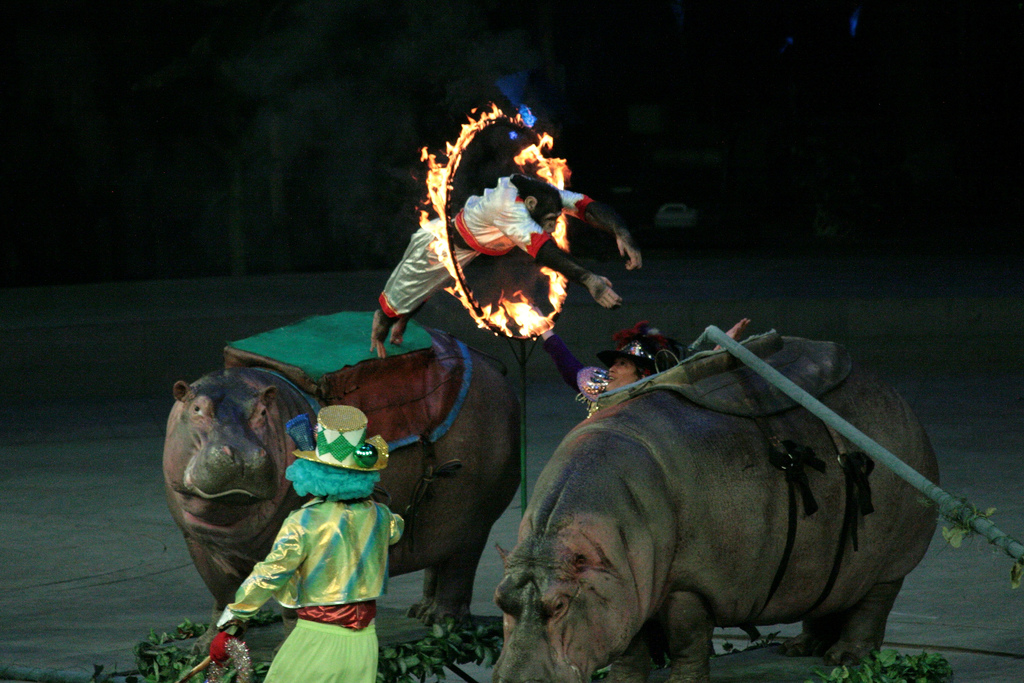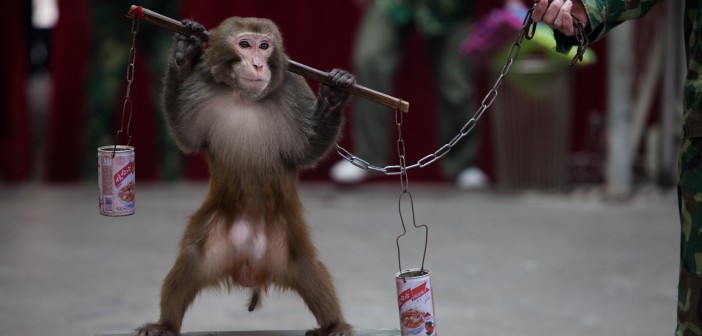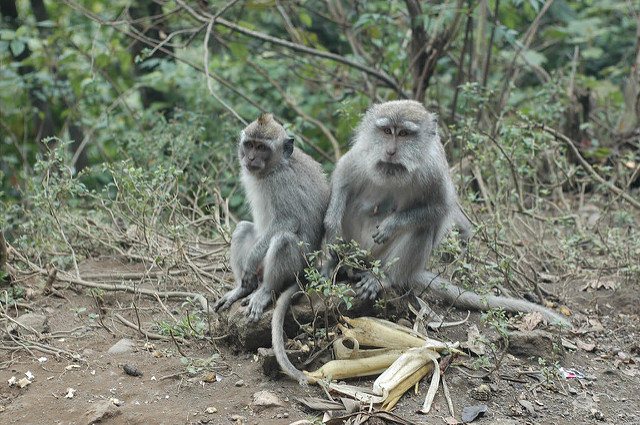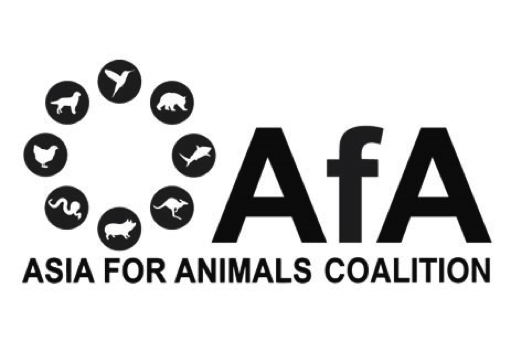(Featured image: Macaque performing balancing act at Changlu farms in Guangdong, China. Courtesy Animals Asia, used under CC BY-NC 2.0)
February 2016
2016年2月
Mr Yu Yigang
Shanghai Circus School
No.188 Rd. Chengjiaqiao
Minxing District
Shanghai
PRC
俞亦纲
上海马戏学校
中国上海市闵行区程家桥路188号
__
Dear Yu Yigang,
尊敬的俞亦纲校长,
We are writing on behalf of the Asia for Animals coalition, representing international organisations with extensive knowledge of animal welfare and conservation issues. We express our deep concern with regards to the planned development of a macaque training school.
我谨代表国际动物福利组织组成的亚洲动物联盟给您致函。我们对于贵司计划引进和开展驯猴课程深表忧虑。
Shanghai Circus World is internationally famous for innovative and ground-breaking acrobatic acts involving some of the greatest human acrobats in the world, and attracting both a large Chinese national and an international audience.
上海马戏城由于新颖且惊为天人的杂技演员表演,在国际上声名鹊起,吸引了大量来自慕名而来的海内外观众。

Chimpanzee forced to jump through fire ring at Chime Long Circus in Panyu, China (photo credit: Tommy Wong, used under CC BY 2.0)
The continued use of animals in the Shanghai Circus World contradicts the Chinese Communist Party’s policy directive on building China into a modern society of “ecological civilization” and the national government’s October 2010 ban on animal performance.[1]
上海马戏城使用动物做演出同样有悖于中国共产党将中国建设成为“生态文明”的现代化社会的方针政策。同时,国家住房与城乡建设部已于2010年十月出台相关政策禁止娱乐性动物表演4。
The potential expansion of the circus to develop a “macaque training school” demonstrates support for a dying industry. A 2012 public opinion survey (conducted by “YouGov,” a market research company, on behalf of Animals Asia) demonstrated that 85% of people that have watched animal performances in zoos said that they would still visit the zoo if there was no animal performance.
计划引进驯猴课程,这看起来是在支持一项夕阳产业。2012年的一份公众意见调查(一家市场调研公司YouGov在亚洲动物基金委托下实施)显示,85%在动物园看过动物表演的公众认为即使以后动物园取消了动物表演,他们还是会继续逛动物园。
It is reasonable to assume that visitor numbers would remain high, and possibly increase, if Shanghai Circus World was to adapt to become the leading animal-free circus within China.
因此我们完全可以预计到,即使上海马戏世界成为中国国内首个完全摒弃动物表演的演出场所,依然可以维持甚至超越之前的观众量。
The continued use of wild animals within such performances contributes to the desensitisation of society to animal violence. Acts of such cruelty condition viewers, including young children, to regard animals simply as objects to be used and abused for entertainment.
另一方面,在此类虐待性表演中使用野生动物,会降低社会公众对动物暴力事件的敏感程度。频繁接触虐待场面的观众,尤其是青少年儿童,容易将动物简单地视为可以随意消遣、使用和玩弄的物件。
Macaques are sentient, intelligent animals. Research has demonstrated their ability for self-awareness[2] and metacognition,[3] with the ability to monitor their own minds as well as their own bodies through self-recognition. They demonstrate exceptional memory abilities including both recognition and the more cognitively complex ability to recall information,[4] complex tool-use,[5] and abilities for abstract thinking and problem solving.[6][7]
就猕猴而言,它是一种有感知力并且很聪明的动物,科学研究表明猕猴有自我意识和元认知,它们有能力通过自我意识监控自己的大脑和身体。在辨别和回忆更繁琐的信息、使用复杂工具中表现出了强大的记忆能力,有抽象思维及问题解决能力。
The welfare of performing macaques is severely compromised by their training, performances, and living conditions.
在圈养环境下会让它们备受折磨,而用于表演的猕猴,由于训练、演出和生活环境等问题,它们的福利更加糟糕。
- Macaque owners frequently engage in negative reinforcement, striking them, forcing them to carry out unnatural tricks and demonstrating that the animals can only be “controlled” by pain and fear.
驯猴时常常会用到一些负面的强化手段,比如殴打等强迫它们做违背天性的表演,说明动物只有在疼痛和恐惧的笼罩下,才会“听话”。
- Many macaques have their teeth cut back to render them harmless. This practice causes severe and chronic pain owing to the exposure of the pulp and nerve endings, and leads to potential infection of the surrounding area, including the gums, jawbone and nasal region.
不少猕猴会被剪掉牙齿,来减少伤害。这种做法导致牙髓和神经末梢暴露在外,会引起严重的慢性疼痛,还会导致周围包括牙龈、下颌和口鼻部等部位感染。
- Macaques are often housed in small, barren enclosures. This can have significant negative consequences on behaviour and welfare. Normal behaviour gives way to a higher percentage of inactivity and/or increased abnormal behaviour, i.e. self-injury, and stereotypies.[8]
猕猴常常会关养在狭小简陋的笼舍中。这种环境也会对猕猴的行为和福利造成巨大的负面影响:正常行为减少,要么活动量减少变得呆滞,要么增加很多异常行为,比如自我伤害、刻板行为等,或者二者皆有。
-
Many of these animals are young macaques taken from their family groups only to be held in isolation. These young animals require time with their mothers and extended family members to allow them to develop the necessary social skills they will require throughout their lives. Animals separated from their mothers at an early age, or raised in inappropriately unstimulating environments are much more likely to develop behavioural problems and stereotypy as they age.[9]
很多猕猴,在年幼时就被强行带离家族群体,进行单独隔离饲养。这些小猕猴需要时间与母猴和其他家族成员一起相处,让它们学习受益终身的必要的社交技能。动物在过早离开母亲,或者在不恰当的环境当中生活,更容易在成长过程中产生行为问题和出现行为刻板。
The macaque owners have little or no training in animal welfare or husbandry and are inadequately equipped to provide these animals with the care they require. Stress caused by such conditions will cause these animals severe behavioural and physiological problems.
驯兽师通常对于动物福或饲养管理知之甚少,以及对于照顾到这些动物的需求也不甚了解。在这种环境下产生的应激,会引起动物严重的行为和生理问题。
On behalf of all of our members globally, we appeal to you to cancel the planned development of the “macaque training school,” to develop a policy which sees a phase out of the use of all animals within the Shanghai Circus World performances, and to establish Shanghai Circus World with an international reputation of amazing human acrobatic performances based on the skill and the physical fitness of the performers.
在此,我谨代表全球的动物保护组织成员,我们恳请您取消引进驯猴课程的计划,并制定政策,逐步取消上海马戏城内的动物表演,巩固由上海马戏城杂技演员力与美的,精彩绝伦的杂技表演所赢来的声誉。
Sent on behalf of the following organisations:
谨代表以下组织致信:
- Animal Guardians动物守护神
- Animal People动物公民
- Animals Asia Foundation亚洲动物基金
- ACRES动物关注研究和教育社团
- Blue Cross of India印度蓝十字会
- Change for Animals Foundation为动物改变基金会
- Earth Island Institute地球岛屿协会
- Federation of Indian Animal Protection Organisations印度动物保护组织联盟
- Humane Society International美国国际人道对待动物协会
- International Animal Rescue国际动物援救
- International Fund for Animal Welfare国际爱护动物基金会
- Philippine Animal Welfare Society菲律宾动物福利协会
- Royal Society for the Prevention of Cruelty to Animals英国皇家防止虐待动物协会
- Society for the Prevention of Cruelty to Animals, Hong Kong香港爱护动物协会
- Society for the Prevention of Cruelty to Animals, Sarawak
- World Animal Protection
Please respond to Lola Webber, Programmes Director, Change for Animals Foundation
请回复至为动物而改变基金会项目总监Lola Webber:
lolawebber@changeforanimals.org
__
Copied to:
请抄送:
MrWang Jianjun
President
Shanghai Media Group
298 Weihai Road
Shanghai
200041
The People’s Republic of China
王建军
总裁
上海文化广播影视集团有限公司
中华人民共和国上海市威海路298号
Mr Zong Ming
President
Shanghai Circus World
No.2266 Rd.Gonghexin
Jing’an District
Shanghai
PRC
宗明
总裁
上海马戏城
中华人民共和国上海市静安区共和新路2266号
Mr Luo Shugong
Minister of Culture
Chaoyang District
No. 10 Rd. Beidajie of Chaoyangmen
Beijing
The People’s Republic of China
雒树刚
文化部部长
文化部
中华人民共和国北京市朝阳区朝阳门北大街10号
__
Citations:
引文:
[1] The Guidance on Further Strengthening the Regulation of Zoos NO. [2010]172; Ministry of Housing and Urban-Rural Development of the People’s Republic of China www.mohurd.gov.cn26/10/2010《关于进一步加强动物园管理的意见》,中华人民共和国住房与城乡建设部www.mohurd.gov.cn,建城[2010]172号文件,2010年10月26日
[2] http://www.cell.com/current-biology/abstract/S0960-9822%2814%2901443-2?_returnURL=http%3A%2F%2Flinkinghub.elsevier.com%2Fretrieve%2Fpii%2FS0960982214014432%3Fshowall%3Dtrue
[3] http://www.sciencedaily.com/releases/2012/03/120322131504.htm?utm_source=feedburner&utm_medium=email&utm_campaign=Feed%3A+sciencedaily+%28ScienceDaily%3A+Latest+Science+News%29
[4] http://www.sciencedaily.com/releases/2011/04/110428123934.htm
[5] Tan, A., Tan, S.H., Vyas, D., Malaivijitnond, S., Gumert, M.D. There Is More than One Way to Crack an Oyster: Identifying Variation in Burmese Long-Tailed Macaque (Macacafascicularisaurea) Stone-Tool Use. PLOS ONE, 2015; 10 (5): e0124733 DOI: 10.1371/journal.pone.0124733
[6] Symbol addition by monkeys provides evidence for normalized quantity coding, Margaret S. Livingstone, PNAS, 2014. DOI: 10.1073/pnas.1404208111
[7] Comparison of discrete ratios by rhesus macaques (Macacamulatta)” Caroline B. Drucker, Marley A. Rossa, Elizabeth M. Brannon. Animal Cognition, Aug. 19, 2015. DOI: 10.1007/s10071-015-0914-9
[8] Mason, G.J. (1991) Stereotypies: a critical review. Animal Behaviour 41: 1015-1037
[9] Cirulli, F., Berry, A., and Alleva, E.(2003) ‘Early disruption of the mother-infant relationship: effects on brain plasticity and implications for psychopathology’, Neuroscience and Biobehavioural Reviews, 27: 73-82







